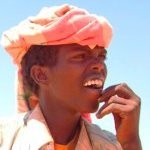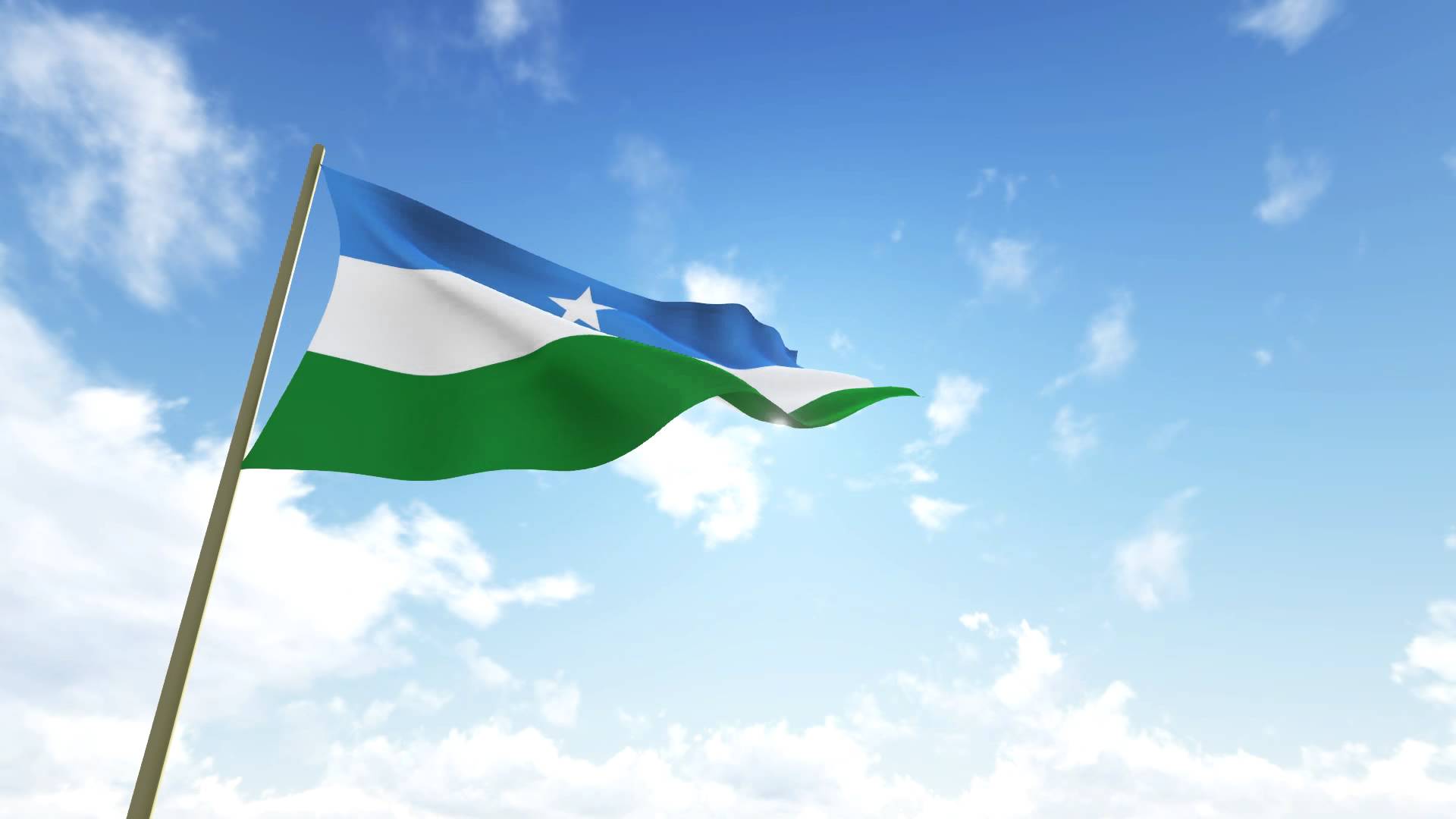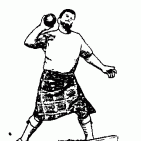-
Content Count
5,088 -
Joined
-
Last visited
-
Days Won
11
Content Type
Profiles
Forums
Calendar
Everything posted by Mooge
-
abwaan is there. i am coming next month. xuubsireed is there too. yaasiin Ciroole and cabdinuur Minsky and my other sol crew are there too. ninyoow, stay safe. mesha mogadishu walaysku gawracaa habenki adigoo kalun cunaya. lol
-
no comment. Abwaan knows who is behind this project.
-
samatar's book project continues. lol
-
Jeffrey Sachs is the director of The Earth Institute Columbia University Author of 'The Price of Civilization The Secret Behind Turkey's Economic Miracle A recent visit to Turkey reminded me of its enormous economic successes during the last decade. The economy has grown rapidly, inequality is declining, and innovation is on the rise. Turkey's achievements are all the more remarkable when one considers its neighbourhood. Its neighbours to the west, Cyprus and Greece, are at the epicentre of the eurozone crisis. To the south-east is war-torn Syria, which has already disgorged almost 400,000 refugees into Turkey. To the east lie Iraq and Iran. And to the north-east lie Armenia and Georgia. If there is a more complicated neighbourhood in the world, it would be difficult to find it. Yet Turkey has made remarkable strides in the midst of regional upheavals. After a sharp downturn in 1999-2001, the economy grew by 5% a year on average from 2002 to 2012. It has remained at peace, despite regional wars. Its banks avoided the boom-bust cycle of the past decade, having learned from the banking collapse in 2000-2001. Inequality has been falling. And the government has won three consecutive general elections, each time with a greater share of the popular vote. There is nothing flashy about Turkey's rise, which has been based on fundamentals, rather than bubbles or resource discoveries. Indeed, Turkey lacks its neighbours' oil and gas resources, but it compensates for this with the competitiveness of its industry and services. Tourism alone attracted more than 36 million visitors in 2012, making Turkey one of the world's top destinations. Even a short stay in Ankara allows one to see these underlying strengths. The airport, highways, and other infrastructure are first class, and a high-speed intercity rail network links Ankara with other parts of the country. Much of the advanced engineering is homegrown. Turkish construction firms are internationally competitive and increasingly win bids throughout the Middle East and Africa. Turkey's universities are rising as well. Ankara has become a hub of higher education, attracting students from Africa and Asia. Many top programmes are in English, ensuring that Turkey will attract an increasing number of international students. And the country's universities are increasingly spinning off high-tech companies in avionics, information technology, and advanced electronics, among other areas. To its credit, Turkey has begun to invest heavily in sustainable technologies. The country is rich in wind, geothermal, and other renewable energy, and will most likely become a global exporter of advanced green innovations. Waste-treatment facilities are not typically tourist attractions, but Ankara's novel integrated urban waste-management system has rightly attracted global attention. Until a few years ago, the waste was dumped into a fetid, stinking, noxious landfill. Now, with cutting-edge technology, the landfill has been turned into a green zone. The private waste-management company ITC receives thousands of tonnes of solid municipal waste each day. The waste is separated into recyclable materials (plastics, metals) and organic waste. The organic waste is processed in a fermentation plant, producing compost and methane, which is used to produce electricity in a 25MW power plant. The electricity is returned to the city's power grid, while the heat exhaust is piped to the facility's greenhouses, which produce tomatoes, strawberries, and orchids. Turkey's diversified, innovative base of industry, construction, and services serves it well in a world in which market opportunities are shifting from the United States and western Europe to Africa, eastern Europe, the Middle East, and Asia. Turkey has been deft in seizing these new opportunities, with exports increasingly headed south and east to the emerging economies, rather than west to high-income markets. This trend will continue, as Africa and Asia become robust markets for Turkey's construction firms, information technology, and green innovations. So, how did Turkey do it? Most important, the prime minister, Recep Tayyip Erdoğan, and his economics team, led by the deputy prime minister, Ali Babacan, have stuck to basics and looked to the long term. Erdoğan came to power in 2003, after years of short-term instability and banking crises. The International Monetary Fund had been called in for an emergency rescue. Step by step, the Erdoğan-Babacan strategy was to rebuild the banking sector, get the budget under control, and invest heavily and consistently where it counts: infrastructure, education, health, and technology. Smart diplomacy has also helped. Turkey has remained a staunchly moderate voice in a region of extremes. It has kept an open door and balanced diplomacy (to the extent possible) with the major powers in its neighbourhood. This has helped Turkey not only to maintain its own internal balance, but also to win markets and keep friends without the heavy baggage and risks of divisive geopolitics. No doubt, Turkey's ability to continue on a rapid growth trajectory remains uncertain. Any combination of crises – the eurozone, Syria, Iraq, Iran, or world oil prices – could create instability. Another global financial crisis could disrupt short-term capital inflows. A dangerous neighbourhood means inescapable risks, though Turkey has demonstrated a remarkable capacity during the last decade to surmount them. Moreover, the challenge of raising educational quality and attainment, especially of girls and women, remains a priority. Fortunately, the government has clearly acknowledged the education challenge and is pursuing it through school reforms, increased investments, and the introduction of new information technologies in the classroom. Turkey's successes have deep roots in governmental capacity and its people's skills, reflecting decades of investment and centuries of history dating back to Ottoman times. Other countries cannot simply copy these achievements, but they can still learn the main lesson that is too often forgotten in a world of "stimulus", bubbles, and short-term thinking. Long-term growth stems from prudent monetary and fiscal policies, the political will to regulate banks, and a combination of bold public and private investments in infrastructure, skills, and cutting-edge technologies.
-
if erdogan is too conservative for my brother naxar nugaled, then this whole religion thing has become a joke. lol. erdogan is the most moderate muslim leader in this world. if he prays at home and his wife wears a scarf, how does that degrade and threaten Turkey's existance. secular fanatics are the ones who oppressed people and never allowed women to make their own choice of wearing the scarf.
-
xoosh did this himself to get attention. it was a setup by him and goodaxe to get media attention. they bribed thugs to carry out this game for political motivation.
-
underdog;962409 wrote: Islaamihi Dixon lacagtii shaloongada aa laga dadsaday. What a shame! by who?
-
These people have been living together and marrying each other for 100 years. Waa abti iyo cousins. In colad laga dhex aburo hada ma fiicna.
-

Somalilanders should introduce these kind of tradtional clothing
Mooge replied to Xaaji Xunjuf's topic in General
xaaji wants to copy the traditional clothing of puntlanders. lol. xaaji, invent your own ninyoow. dont try to be copy cat. look at how puntland kings used to dress ninyoow. -
they meant "project nomad". lol. they guys are creative. traveller = immigrant = nomad = somali. looool. but that lady can't be somali. is she? somalida Canada ma sidasay u eg yihiin???
-
this guy is out of it. does he not get the message?
-
Gedoweb.com Warar aanu si hoose u helnay ayaa sheegaya in Madaxweynaha Dowladda Soomaliya Xasan Sh Maxamud uu shir gaar ah la qaatay Xubnaha Beesha **** ee Dowladda Soomaliya kaga jira Baarlamaanka. Shirkaas oo ku saabsanaa in Ay xildhibaanadani aadaan gobolkooda, dabcan, Gedo ka hor intuusan bilaaban Shirka Dib u heshiisinta ee ay dowladdu ku baaqday ee ka dhici doona Muqdisho Madaxweynaha ayaa ku tilmaamay in safarka xildhibaanadani uu noqdo, u kuur galid xaaladda Guud iyo fikirka Shacabka Gedood. Isagoo ku booriyey inay ka dhaadhiciyaan in gobolka Gedo lagu daro, ayna maamul goboleed kula midoobaan, lana samaystaan "walaalaha Gobolada Bay iyo Bakool degan", waa siduu hadalka u dhigaye. Arintaas oo Xildhibanada ku noqotay mid ugub ah oo aysan filanayn, ayey u sheegeen madaxweynaha Xasan Sh, iskuna raaceen Inay ka soo tashan doonaan jawaabna ku soo celinayaan muddo yar gudaheed. Arinta uu Xasan Sh ka wado Jubboyinka ayaa u muuqata mid lagu luminayo mustaqbalka Shacabka Gedo iyo Guud ahaan dadka Dega Jubbooyinka oo hadda ay u dhisan tahay maamul Goboleed ay ku midaysan yihin, kuna doorteen Madaxweyne Axmed Madoobe iyo KU xigeenkiisa Gen Fartaag.
-
this is what qoslaye caused in our country. taxi drivers from UK and Canada who run HAG organisation and control qoslaye's office want a full blown clan war similar to 1990s. these taxi drivers' families are safe in the West. qoslaye is a small minded individual who doesn't see the bigger picture. he has no agenda for the country and in the last few months he has done nothing for the country but be consumed by jubaland jubaland jubaland. mooge warned the somali people. people are now realizing this man is exactly how mooge described him months and months ago.
-
Video: Sheikh Qaradawi makes U-turn http://english.alarabiya.net/en/News/middle-east/2013/06/09/Sheikh-Qaradawi-renews-call-for-holy-war-against-Hezbollah.html
-
LONDON — Saudi billionaire Prince Alwaleed bin Talal has sued Forbes magazine for libel in a British court, alleging its valuation of his wealth at $20 billion was short of the mark by $9.6 billion, Britain's Guardian newspaper reported on Friday. http://www.voanews.com/content/saudi-prince-alwaleed-bin-talal-sues-forbes-magazine-libel-for-underreporting-wealth-at-20-billion/1677250.html
-
what a humiliation for the warmonger Fiqi. fuleysana wuu cararay marki horena wa laga wayey war kalay danta somalida ka tali. things are going as planned. these militias will be cleansed from the city. taas aniga igu ogada. shabaab ina qoslaye adegsada wa wax laga naxo.
-
In a victory for Erdogan, Turkey becomes IMF debt free. This week, Turkey made the final payment of its loan to the IMF and Prime Minister Erdoğan became the first Turkish Prime Minister to travel to the United States with no IMF debt to mention. The last time Turkey owed no debt to the IMF fund was in 1994 during the leadership of Prime Minister Tansu Çiller. Turkey has, in fact, evolved from a borrower into a lender, offering the IMF fund $5 billion in June of 2012 to assist with the European economic crisis. How did the AKP manage such an economic success when the world is being rocked by a global crisis? What is the architecture behind Turkey’s economic success? he first IMF loan was taken out by the government of President Cemal Gürsel under a stand-by agreement in 1961. From 1961 until today, 19 stand-by agreements were made. Total principal debts of 56.5 billion US dollars were incurred. Turkey’s debts to the IMF reached a record level after 2001. When the AKP came to power, IMF delegations were visiting Turkey every month, and their investigations occupied much of the public agenda. The business world, markets, small traders, farmers, and everyday citizens all determined their positions on the basis of meetings with IMF delegations. All governments before the AKP were asked to make major concessions and promises of reform regarding domestic policy in order to borrow further from the IMF. Eight presidents and 38 governments witnessed the spiraling IMF debts over 52 years. Turkey was among the 3 countries making the highest number of agreements with the IMF. A different chapter of this story began to unfold after the election of Prime Minister Erdoğan and the AKP. Turkey gradually privatized the entire state sector and worked to resolve problems of corruption within the newly privatized enterprises. Prime Minister Erdoğan introduced Turkey to a new economic model in which the newly created private sector would not be a burden on the state and the state would not over-regulate the private sector in return. Public infrastructure investments were made possible without burdening the Treasury, through the ‘build-manage-transfer’ privatization method, increasing productivity very significantly, while income distribution in the economy was adjusted. This model helped create an equality of opportunity among low-income groups in the Turkish economy. One of the best decisions that Prime Minister Erdoğan made was to reduce military spending as a percentage of GDP, despite the Middle East being a place of threat and conflict, and devote more government resources toward infrastructure, healthcare, and education. The AK Party also abolished the visa requirements with more than 70 countries and lifted passport requirements with two countries, measures that made a great contribution to the creation of a free market with these nations. Yes, these are important building blocks of the architecture. But we would be mistaken to forget the architects and their contribution.
-
Xaaji Xunjuf;958143 wrote: Hargeysa tribe and borama tribe are of the same origin they are the same people there are no differences between the people of Somaliland. they are not the same origin. you said you are arab mehri hashimite and reer awdal claim to be original somalis in the land. not even related ninyoow. they never said they are Arab decendants.




